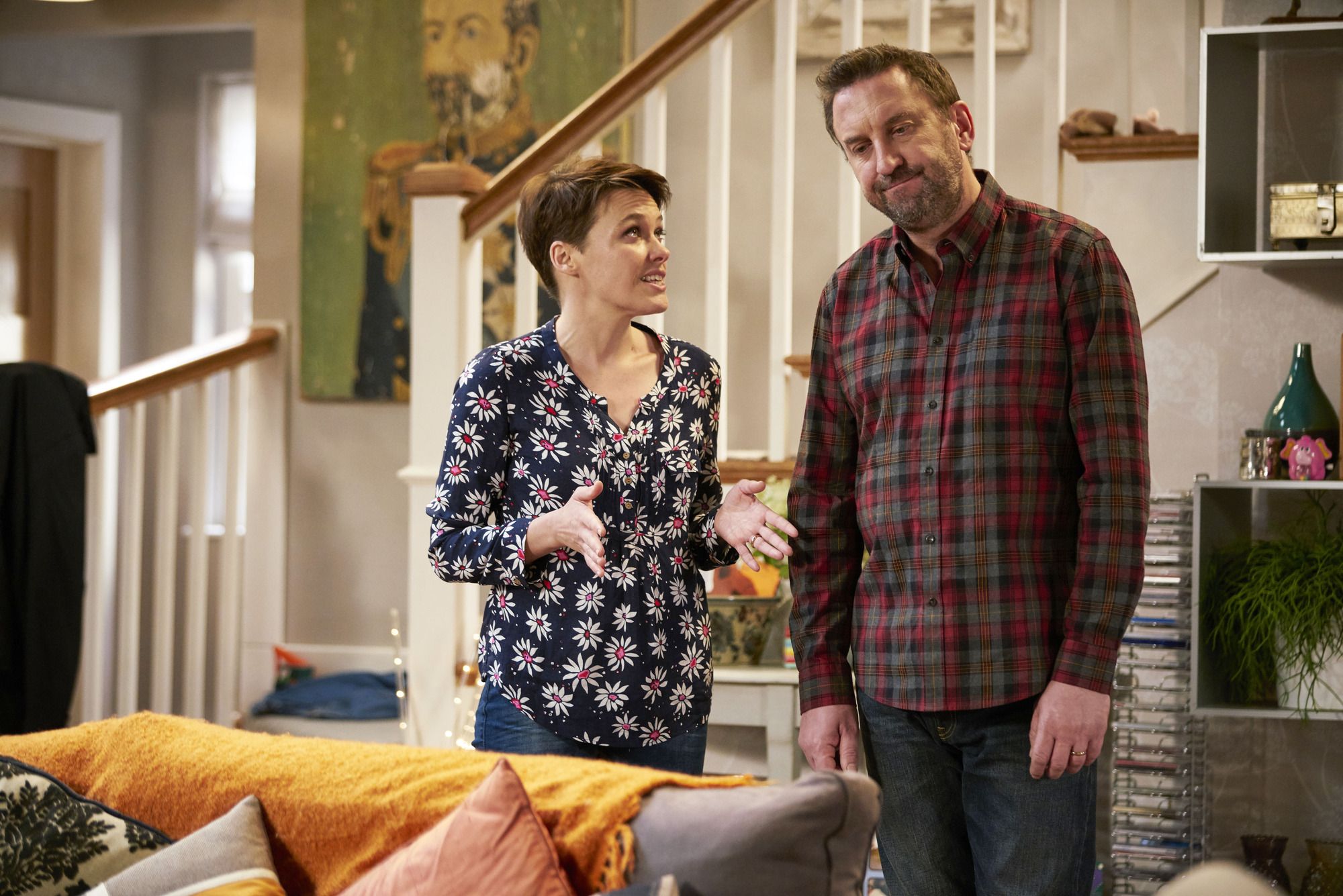‘Not Going Out’ and the British Sitcom
Great news, TV comedy fans – Not Going Out is back for a ninth series, making it the longest-running British sitcom still airing on our screens (with the exception of Red Dwarf, but a ten-year gap will do that). And this is in spite of it consciously echoing the sitcoms of an earlier era, a time when TV was full of Terry and June and Last of the Summer Wine. Or, perhaps, it’s exactly because of this. Why is the show so popular, and what does it say about the modern state of the British sitcom?
Despite a number of cast changes, the show has essentially been the same throughout its run. Lee (Lee Mack) is a wise-cracking layabout who lives (from series two) with Lucy (Sally Bretton – his landlady until series eight, then his wife). Lee winds up in a number of farcical situations, and his attempts to remedy them always wind up making things worse. Other cast members have included Tim Vine (as Lee’s best friend and Lucy’s brother Tim), Bobby Ball (as Lee’s alcoholic father Frank) and Miranda Hart (as Lee’s lazy cleaning lady Barbara).
Most of these gags land but, if they don’t, you’re not waiting more than 20 seconds before there’s another one
The show was slated by critics and cancelled in 2009, but positive feedback from fans and Mack’s enthusiasm meant it returned in 2011, regularly attracting around five million viewers. In its eighth season in 2017, it skipped ahead in time and saw Lee and Lucy with three kids, effectively becoming a family sitcom (a move that pleased its critics – some had stated that its “aged formula of set-up-gag, set-up-gag [was] apparently running out of steam”). Many of the critics analysing it have noted with pleasure that, to their surprise, Not Going Out remains amusing.
A large reason for this is the format of the show. In interviews, Mack said: “Everyone told me that British sitcom was dead. Then I looked at Seinfeld and Frasier and thought, ‘No, it’s not, it just needs more gags.’” Not Going Out works on what is essentially an American format – almost every line is a gag, or a set-up for a gag (see The Big Bang Theory or Brooklyn Nine-Nine for modern US examples). Most of these gags land but, if they don’t, you’re not waiting more than 20 seconds before there’s another one. These gags also tend to operate on wordplay and misunderstanding, meaning that the episodes can stand up to repeat viewing in a way that more ‘pop-culture’-based sitcoms do not.
Not Going Out is here to make you laugh – nothing more, nothing less
Not Going Out stands out as a British sitcom not only because of its success, but also the lack of innovation in its format – it harks back to the studio-based sitcoms of the 70s and 80s, actually managing to resonate with audiences. It is laugh-driven in a way that many British sitcoms aren’t – it embraces the daftness of its premises in a way that more serious sitcoms (like The Detectorists or Fleabag) simply aren’t. There’s nothing wrong with these shows but, when you introduce more dramatic elements into a show, the comedy often suffers as a result. Not Going Out is here to make you laugh – nothing more, nothing less.
The sitcom is something that British TV seems to be shying away from – it’s had some highs (the meta-example that is Mrs Brown’s Boys) and some lows (the incredibly lame Citizen Khan) – with Not Going Out about the only recent example that manages to both attract a large audience and be consistently funny. Whether or not it is an unoriginal as the critics say, it is one of the few comedies that appeals to a lot of people and always produces a good number of laughs – perhaps the commissioning agents should take note.

Comments